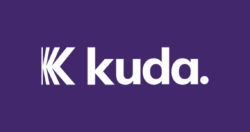
In the ever-evolving landscape of higher education, securing a rewarding and fulfilling job is a journey that requires strategic planning and a thorough understanding of the industry. Whether you’re a recent graduate eager to embark on your career or a seasoned professional seeking new opportunities, this guide will provide valuable insights into the higher education job market. From academic positions to administrative roles, we’ll explore the nuances of higher ed jobs and offer tips on how to stand out in this competitive field.
Section 1: The Diversity of Higher Ed Jobs
Higher education institutions are multifaceted entities with a wide array of job opportunities. From faculty positions in various disciplines to administrative roles spanning admissions, student affairs, and finance, the possibilities are diverse. In this section, we’ll delve into the different types of jobs available in higher ed and highlight the skills and qualifications needed for each.
Section 2: Navigating the Academic Job Market
For those aspiring to become educators, the academic job market can be both challenging and rewarding. We’ll discuss the tenure-track process, the importance of research and publications, and the significance of networking in academia. Additionally, we’ll explore the role of adjunct professors and provide insights into how to build a successful academic career.
Section 3: Essential Skills and Qualifications
Higher ed jobs often require a unique set of skills and qualifications. Whether you’re applying for a teaching position, an administrative role, or a leadership position, certain skills are universally valued. This section will outline the key skills and qualifications that hiring committees look for and offer advice on how to develop and showcase them in your job applications.
Section 4: Crafting a Standout Resume and Cover Letter
Your resume and cover letter are your first impression on potential employers. In this section, we’ll provide a step-by-step guide on how to create a compelling resume and cover letter tailored to higher ed positions. From highlighting your academic achievements to showcasing relevant experience, you’ll learn how to make your application stand out in a competitive pool of candidates.
Section 5: The Importance of Networking in Higher Ed
Networking is a powerful tool in the higher education job market. We’ll explore the significance of building professional connections, attending conferences, and engaging with online communities. Tips on creating a strong LinkedIn profile and utilizing networking opportunities will be discussed, helping you establish a robust professional network that can open doors to exciting career prospects.
Section 6: Job Search Strategies and Online Platforms
Finding the right job in higher ed requires a strategic approach. This section will cover effective job search strategies, including utilizing online platforms, job boards, and university career services. We’ll also discuss the importance of staying informed about industry trends and job market demands to enhance your job search success.
Conclusion:
Securing a job in higher education is a dynamic process that involves a combination of education, skills, networking, and strategic planning. By understanding the diverse landscape of higher ed jobs, honing essential skills, and utilizing effective job search strategies, you can position yourself for success in this competitive field. Whether you’re starting your career or seeking new opportunities, this comprehensive guide is your roadmap to navigating the higher education job market and landing your dream position.







